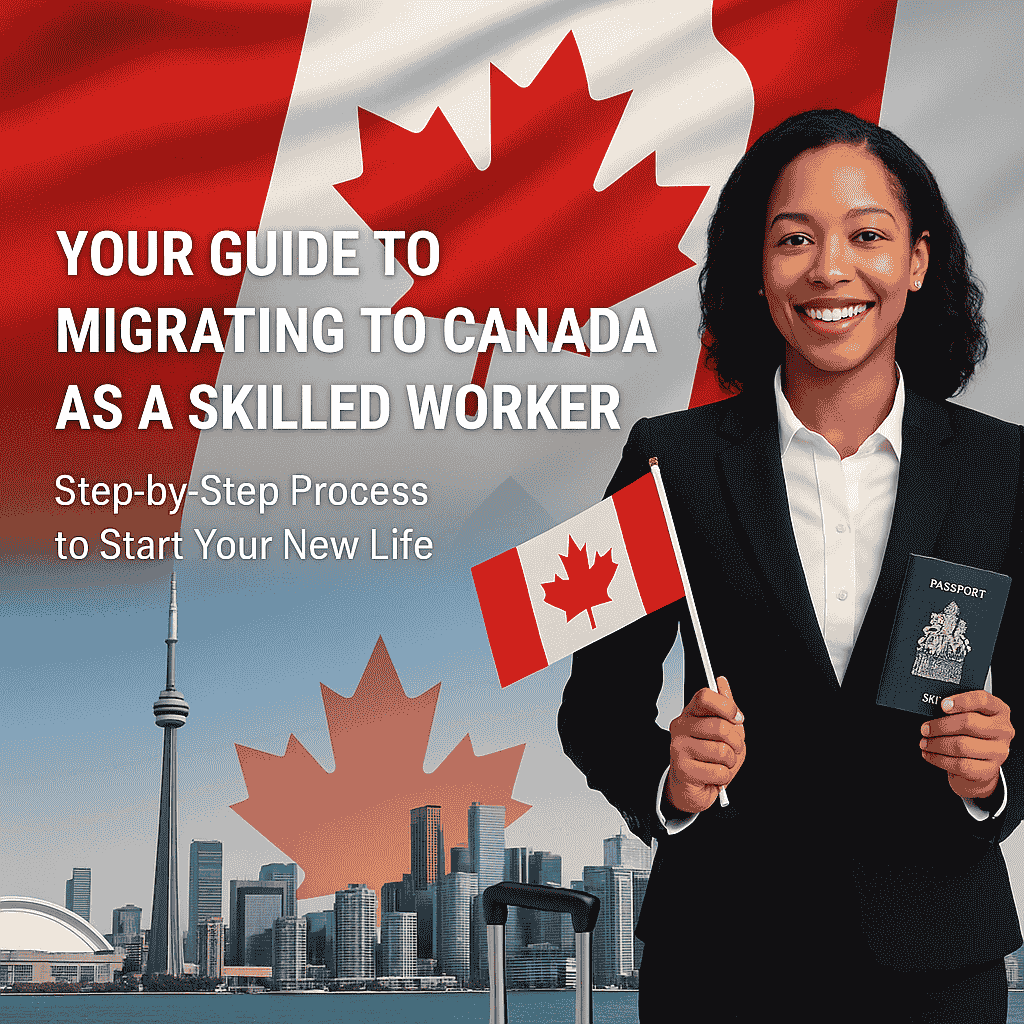Thinking about starting a new chapter in Canada? With its booming economy, world-class healthcare, and excellent quality of life, Canada is a dream destination for skilled professionals from around the globe. Whether you work in IT, healthcare, engineering, or finance, the country offers incredible opportunities to grow your career and build a fulfilling life.
This guide breaks down everything you need to know about immigrating to Canada as a skilled worker—step by step.
Why Skilled Workers Choose Canada
Canada is actively seeking talented professionals to fill gaps in its workforce. Thanks to strong demand across many sectors, skilled workers enjoy great job prospects, competitive salaries, and an outstanding standard of living.
To make the process easier, the Canadian government has introduced several streamlined immigration programs, with Express Entry being the most popular route.
Understanding the Express Entry System
Express Entry is Canada’s main immigration system for skilled workers. It manages applications for three federal programs:
- Federal Skilled Worker Program
- Federal Skilled Trades Program
- Canadian Experience Class
Applicants are ranked using the Comprehensive Ranking System (CRS), which scores you based on factors like age, education, work experience, and language skills. The higher your CRS score, the better your chances of receiving an invitation to apply for permanent residence.
Key Eligibility Requirements
To qualify as a skilled worker, you must meet certain criteria:
✅ Work Experience: At least one year of continuous full-time (or equivalent part-time) experience in a skilled occupation.
✅ Language Proficiency: You’ll need to prove your English or French skills by taking tests such as IELTS or CELPIP.
✅ Educational Credentials: An Educational Credential Assessment (ECA) is required to confirm your qualifications are equal to Canadian standards.
Language Proficiency: What You Need to Know
Strong language skills are essential for success in Canada. You’ll need to take an approved test to demonstrate your proficiency. The most common options are:
- IELTS (International English Language Testing System)
- CELPIP (Canadian English Language Proficiency Index Program)
Your test scores play a significant role in your CRS ranking.
Getting Your Educational Credential Assessment (ECA)
An ECA verifies that your foreign diploma, degree, or certificate is valid and comparable to Canadian education. It’s a crucial step for earning points in Express Entry and showing employers you meet qualification standards.
Creating Your Express Entry Profile
Once you’ve gathered your documents and test results, you can create an online Express Entry profile. You’ll enter details about:
- Work experience
- Education
- Language test results
- Other personal information
Based on this data, you’ll receive your CRS score and enter the candidate pool.
Improving Your CRS Score
Your CRS score determines how competitive your application is. Here are ways to boost it:
- Improve your language test results
- Gain additional work experience
- Pursue higher education
- Secure a valid job offer
- Get a provincial nomination
Remember, every point counts, so consider all options to strengthen your profile.
Provincial Nominee Programs (PNPs)
Besides Express Entry, you can also apply through Provincial Nominee Programs. Each province has its own PNP targeting specific occupations and skills. If you receive a provincial nomination, you’ll get 600 extra CRS points, almost guaranteeing an invitation to apply.
The Value of a Job Offer
While not mandatory, having a job offer from a Canadian employer can significantly increase your CRS score. To find opportunities, check:
- Online job boards
- Professional networks
- Industry job fairs
- Canadian recruitment agencies
Submitting Your Permanent Residence Application
Once you receive an invitation to apply, you’ll need to submit a complete application within 60 days. This includes:
- Online forms
- Supporting documents
- Application fees
Accuracy is critical double-check everything to avoid delays or refusals.
Medical and Security Checks
To protect public health and safety, you and your family members must pass:
- Medical exams by approved panel physicians
- Police background checks
These clearances are mandatory before your application can be finalized.
Receiving Your Confirmation of Permanent Residence (COPR)
If your application is approved, you’ll receive a Confirmation of Permanent Residence (COPR). This document allows you to travel to Canada as a new permanent resident.
Before you move, make sure to:
✅ Arrange flights
✅ Organize finances
✅ Plan your first weeks in Canada
Settling Into Life in Canada
Your journey doesn’t end when you arrive. You’ll need to:
- Apply for a Social Insurance Number (SIN)
- Open a Canadian bank account
- Find housing
- Enroll in healthcare
- Get familiar with your community
Canada offers many resources to help newcomers settle, including free language classes, job support services, and cultural integration programs.
Benefits of Migrating to Canada
Becoming a permanent resident of Canada offers countless advantages:
🌿 Free healthcare
📚 Quality education
💼 Strong job market
🏠 Safe, diverse communities
🌍 Inclusive, multicultural society
Start Your Canadian Dream Today
Migrating to Canada as a skilled worker is a life-changing opportunity. While the process can feel complex, understanding the steps from Express Entry and PNPs to job offers and settlement will put you on the path to success.
With preparation, determination, and the right strategy, you can make Canada your new home.
Ready to begin your journey? Start by assessing your eligibility, gathering your documents, and exploring your options today!

3 thoughts on “How to Migrate to Canada as a Skilled Worker”